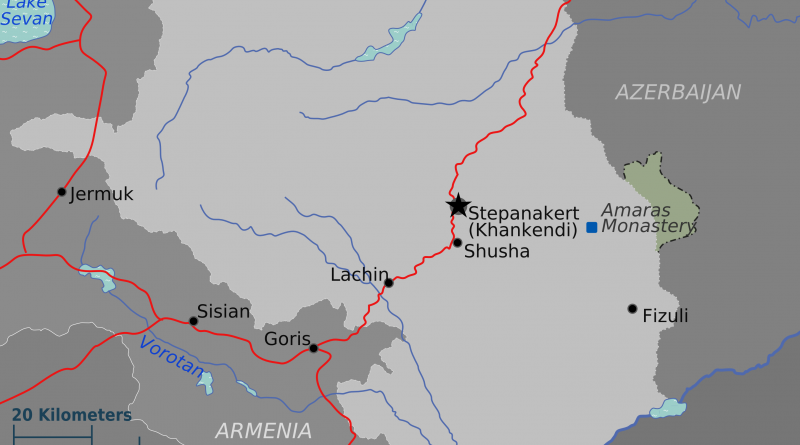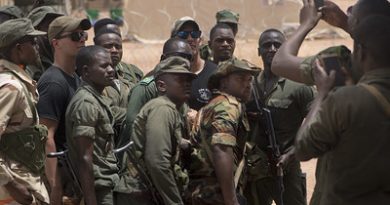Armenia and Azerbaijan clash violently over the Nagorno-Karabakh region, leaving many dead
Shweta Parthasarathy
Staff Writer
On September 27, the conflict between Armenia and Azerbaijan over the region of Nagorno-Karabakh reached its highest level of violence since 2016. Reuters reports that the clashes have reignited concerns over stability in the South Caucasus, a popular corridor for oil and gas pipelines that supply the world market. The pipeline runs from the Shah Deniz gas field in the Azerbaijan sector of the Caspian Sea to Turkey.
According to Reuters, at least 16 Nagorno-Karabakh military members, in addition to several civilians, were killed during the clashes. The Guardian reports that at least ten Armenian military officials and two civilians were killed. On the Azerbaijani side, Al Jazeera reports that the number of civilians injured or killed is uncertain, but includes at least a family of five killed by Armenian shells.
The skirmishes on Sept. 27 were a continuation of a longstanding feud over the region of Nagorno-Karabakh. A report from Al Jazeera indicates that in the early 1920s, Nagorno-Karabakh was part of Soviet-ruled Azerbaijan. However, as the Soviet Union began to crumble, ethnic Armenians living in the region grew increasingly unhappy with the idea of being ruled by Azerbaijan’s government, and disputes became common. Currently, the region is internationally recognized as part of Azerbaijan, according to Al Jazeera. Yet, the ethnic Armenians who reside there reject Azerbaijani authority and have been running their own government with Armenian support. This disagreement has led to numerous disputes, including a war that was ended by a Russian ceasefire in 1994, CNN reports.
The origin of the Sept. 27 clash remains unclear. According to CNN, Armenia claims it was responding to missile attacks by Azerbaijan, while Azerbaijan claims Armenia is to blame for the clash. Al Jazeera reports that the Azerbaijani Foreign Ministry places full responsibility for the situation on the political and military leadership of Armenia. These clashes have triggered an international response, Al Jazeera furthers. The U.S. State Department said in a statement that they interacted with both sides of the conflict to encourage negotiations and an end to the violence. Russia, France, Germany, and Iran put out similar statements calling for the end of hostilities and an entry into negotiations.
Turkish President Recep Tayyip Erdogan tweeted his support for Azerbaijan, saying, “While I call on the Armenian people to take hold of their future against their leadership that is dragging them to catastrophe, we also call on the entire world to stand with Azerbaijan in their battle against invasion and cruelty.” The President’s spokesman blamed Armenia for starting the conflict and Turkey’s Defense Minister Hulusi Akar promised Turkish support of Azerbaijan. Pakistan also pledged its support to Azerbaijan, calling the shelling by Armenian forces “unfortunate” and “reprehensible.” They pointed to the UN Security Council’s resolutions giving Azerbaijan authority over the region as reason for supporting their efforts.
Leaders of large international institutions also responded to the clashes. Al Jazeera reports that Charles Michel, president of the European Council, called for an “immediate return to negotiations, without preconditions,” and an end to the fighting. According to , the Secretary-General of the United Nations, Antonio Guterres, also put out a statement encouraging both sides to “stop fighting, de-escalate tensions and return to meaningful negotiations without delay.” He condemned the use of force on both sides, the loss of lives, and the effect on civilian life in the region.



